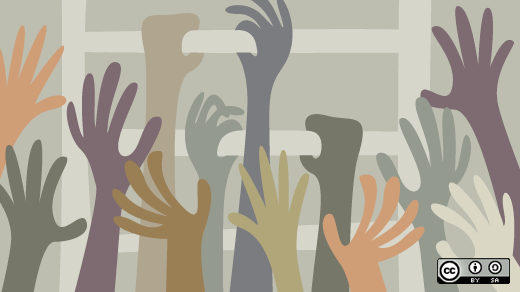I'm usually a fairly upbeat person, but there's something that never fails to depress me: the misappropriation of ideas. Don't misunderstand; I'm all about sharing. But I also believing in giving credit where it's due. And in the business world, these two ideas often seem to be at odds with one another.
Here's how it happens. John, Jason, and Sarah all work in the marketing department of a major clothing retailer. John reports to Sarah, who reports to Jason. (That makes John the lowest guy on the corporate totem pole, while Jason is the highest.) John works with Sarah on what proves to be a major project for Sarah's career. Sarah approves John's work and tells him repeatedly what an incredible idea he had and how this project will be a turning point for the company.
Go-live day arrives and John and Sarah are celebrating with some beer at the launch party—it's a hip clothing company, after all—when Jason heads over to congratulate Sarah on her success. John stands next to her, his heart pounding as he realizes this is his big moment to be recognized for his innovative idea—the one that made the project. This is when upper management will know he's a guy to keep an eye on.
Sarah introduces John to Jason. “Have you met John? He worked with me on this project.” Jason gives him a nod and a smile, then turns to Sarah and raves about this project she's put together. He just loved [the innovative idea]. The project would have been nothing without it.
By now, John is terrified to take a sip of his beer, lest that be the moment when the conversation turns to him. He's deftly wiping his sweating palm on the side of his pant leg, in case Jason pumps his arm up and down.
“Yes, it really did turn out wonderfully, didn't it?” Sarah smiles. “I'm so glad it's been so well received. We all put in a lot of hours on this one.” Jason nods approvingly.
John's eyes dart back and forth between Sarah and Jason, realizing that she hasn't told Jason who thought of the great idea. Worse, Jason is going to walk away thinking it's Sarah's idea. He scrambles for some way to gracefully reclaim his idea. His career-altering moment. Something... anything...
Jason lifts his beer as if to toast them, then excuses himself to continue the rounds at the launch party. Sarah gives John a playful nudge and says, “Pretty crazy, huh? Couldn't have done it without you, buddy.” Then she heads over to another colleague waiting to congratulate her.
John looks down at his beer and suddenly wishes for a few more.
Reaching for the stars
What motivates an otherwise great coworker—or more often, superior—to put others in such awkward positions?
My money's on the possibility of upward mobility. Nothing undermines relationships more than competing self-interests. For Sarah, this project represents her team's moment in the spotlight—and by extension, hers. When Jason approaches to congratulate her, Sarah doesn't take all the credit for the project; she gives her team a nod by mentioning the long hours they've pulled. But this only boosts Sarah's position; in addition to an innovative thinker, she's also a team player. She's practically screened “Promote me!” on her designer t-shirt.
What would happen if Sarah spoke up and praised John for the idea and much of the work on the project? Jason might well turn in surprise and look at John with interest. He might look at Sarah as a good project manager, but he's likely thinking about John's future at the company.
But is Sarah wrong? Maybe not.
A crowded climb
Have you ever tried to climb up a ladder next to another person? Me neither. There's probably a good reason why. We'd both be grappling for space on our rung while someone else trampled over top us.
Unfortunately, this little corporate fairy tale—more Brothers Grimm than Disney—is one of the many ways that the scramble for power undermines the sharing of knowledge. I see it repeated between middle and upper management, in competing departments, and steeply increasing the higher you move up the ladder, as those in lofty places have already eliminated less competitive players.
I'd love to tell you that the answer to my original question is “yes, they can co-exist.” But I'm not so sure that's possible.
If you've seen it work, I'd love to hear how.






9 Comments